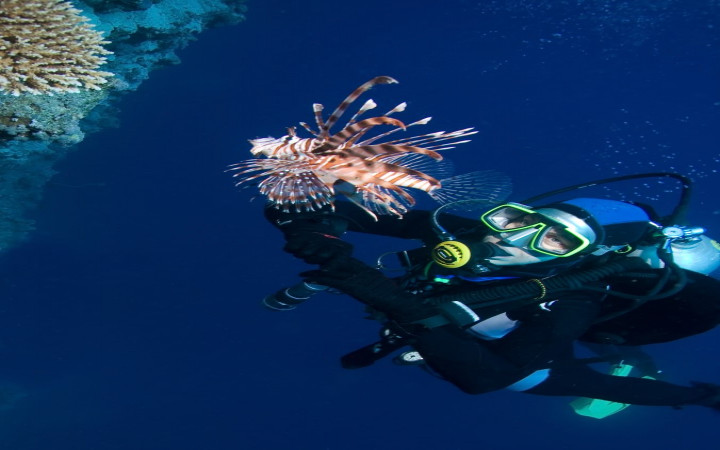Today’s Wonder of the Day was inspired by Hannah. Hannah Wonders, “What do Marine biologist do?” Thanks for WONDERing with us, Hannah!
What do you want to be when you grow up? It's a fair question that most students hear from adults as they begin to get older and progress through school. After all, it's never too early to start thinking about and planning your future.
Do you like to spend a lot of time in or near the ocean? You could think about becoming a professional surfer. A lifeguard is another option. Or, if science is your thing, you could think about becoming a marine biologist!
Marine biologists are scientists who study the plants and animals that live in the ocean.
If you've ever seen a globe, you know that there's a lot of blue on it. Why? About 70% of Earth's surface is covered by oceans! When you think about the thousands upon thousands of different types of fish, aquatic mammals, and plants in the world's oceans, you start to get a sense of how vast the field of marine biology is.
In fact, there are very few people in the world who have the job title "marine biologist." "Marine biologist" is simply too broad, since most people work in specialized areas within marine biology.
So instead of a marine biologist, a person might be a marine mammologist, biological technician, marine conservationist, ichthyologist, or even a systems analyst, mathematician, economist, or sociologist. There are even people who focus on just the chemical and physical aspects of oceans, including hydrologists and oceanographers.
People who specialize in marine biology can focus on so many different aspects of oceans and the life they support. In addition to studying aquatic plants and animals, marine biologists might also study ocean currents, how human behaviors impact the oceans, or how ocean environments might produce plants and animals that can be used as medicines.
Some people become interested in marine biology, because they want to work with marine mammals, such as dolphins and whales. However, marine biologists don't handle marine mammals in the wild very often. If you're interested in training dolphins, working with whales or caring for other marine animals in captivity, you might want to become a zookeeper or pursue a related field in zoology and find a job working at an aquarium or zoo.
Marine biologists will often find that their work time is split between field time and laboratory time. Working in the field, such as the ocean, a beach, or a brackish estuary, is a definite perk of being a marine biologist. Analyzing the data that's collected and determining the next steps of a study are usually reserved for a laboratory, though.
If you're interested in marine biology, make sure you focus on science and mathematics early in your academic career. Try to find volunteer opportunities that will allow you to work with plants and animals in a scientific context. Finally, you'll want to pursue a college education at a facility with marine research capabilities.





